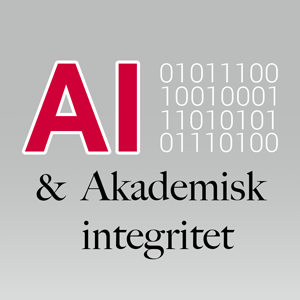Contact
If you want to discuss questions about AI and Academic Integrity with us at the Department of Learning and Digitalisation, contact our educators at the unit for educational development.
Mail: epu@slu.se

AI-based text bots such as ChatGPT raise a number of questions about academic integrity, as AI can produce increasingly sophisticated texts.
AI is developing rapidly and is now also affecting higher education more and more. AI support will be part of everyone's everyday life and there are many possibilities but also risks involved. Recently, information has spread about the ChatGPT robot, that can answer advanced questions and quickly create well-formulated texts based on various requests. (However, there are a number of other bots such as Google's Bard, Perplexity and others).
A home exam where the students have to write a PM or similar has never been completely legally secure. Letting others (friends, "kind" parents or commercial players) write the student's essays has been happening for a very long time. Already in Linnaeus' time, you could buy a written thesis.
However, it has now become fast, easy and accessible for everyone to be able to get a relatively well-written text in seconds. In addition, several of these chat bots are currently being integrated for example into Office 365, Microsoft BING and Google's search tools.
No, existing plagiarism check systems like Ouriginal cannot find AI texts! Every time a person uses a chatbo, original texts are written, so there is no plagiarism in the usual sense. However, software that can recognize AI-written text is coming. However, there are always ways to get around technology-assisted control systems, so we probably should not rely exclusively on them.
AI is here to stay so the issue needs serious management. Our point of view is that it is best handled through good information work (for both teachers and students), review of the university's policies and guidelines, and above all through well-thought-out examination strategies. Remember that AI-supported writing will be part of the students' future professional life, so we must also learn to handle it in a sensible way and see how we can use and integrate the technology in teaching without it leading to cheating.
Below you will find some things you can do right now!
Associate professor Sonja Bjelobaba is researcher at the Centre for Research Ethics & Bioethics as well as an associate professor at the Department of Modern Languages the Uppsala university.
What impact do new AI tools have on education?, Umeå University
On AI and assessment, Uppsala university
If you want to discuss questions about AI and Academic Integrity with us at the Department of Learning and Digitalisation, contact our educators at the unit for educational development.
Mail: epu@slu.se